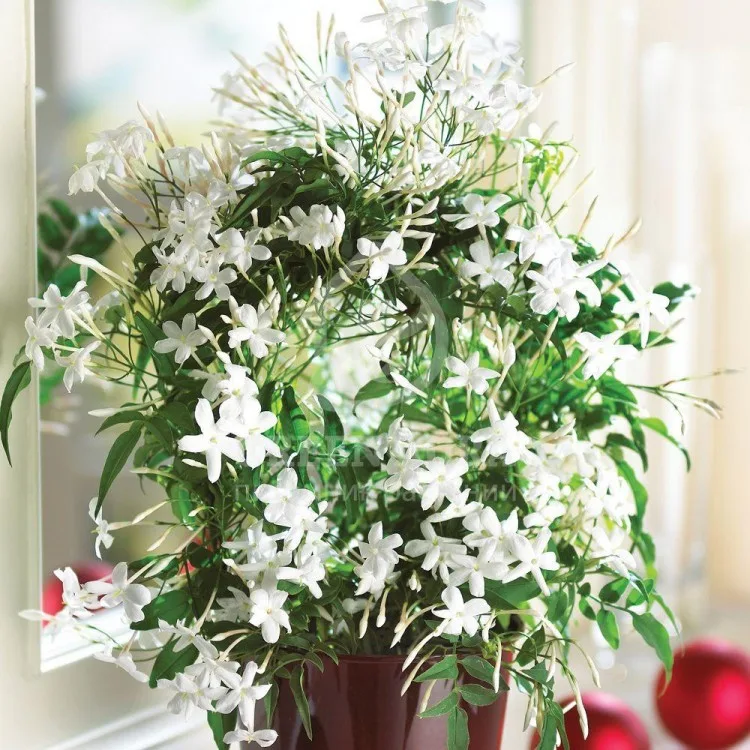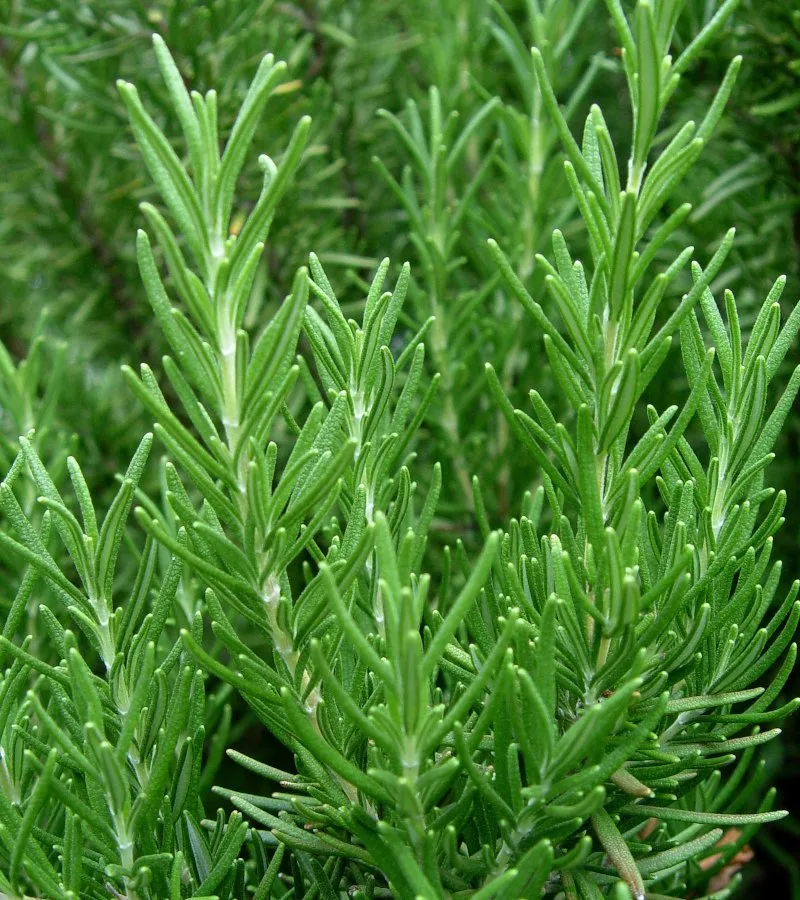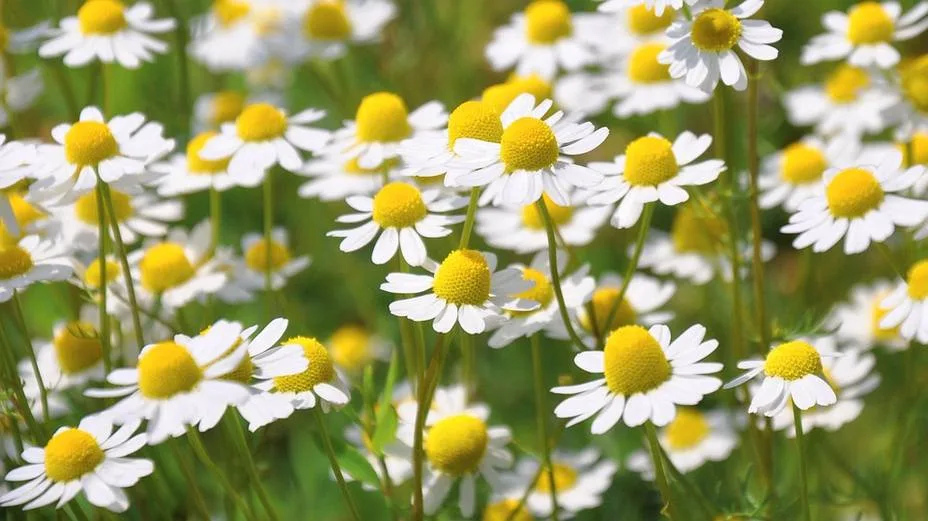Introduction
The presence of plants in spirituality has a long history, transcending cultures and civilizations over time. The connection between humans and plants goes beyond the physical and into the spiritual realm. In this post, we’ll delve into the depths of the spiritual significance of 10 different plants. We’ll discover how these plants play essential roles in rituals, ceremonies and spiritual practices around the world, contributing to the connection between humanity and the natural kingdom. Get ready to explore the stories, symbolism and spiritual influence these plants have on our lives.
table of contents
Rose
The rose is one of the world’s most iconic flowers and, throughout history, has played a significant role in various cultures in terms of its spiritual meaning. In this section, we will explore the profound spiritual meaning of the rose in different cultural and religious contexts, as well as its use in rituals and its religious symbolism.

Spiritual Meaning of the Rose
The rose is often associated with a variety of spiritual meanings, including:
- Divine Love: In many spiritual traditions, the rose is seen as a symbol of divine love, representing the love of God or the supremely benevolent deity towards humanity.
- Purity and Innocence: The beauty and delicacy of rose petals often symbolize purity and innocence. This association can be seen in baptism and wedding rituals.
- Spiritual Renewal: The rose is also seen as a symbol of spiritual renewal and resurrection, especially in Christian traditions, where it is associated with the resurrection of Jesus Christ.
- Meditation and Contemplation: In some Eastern traditions, such as Buddhism and Hinduism, the rose is used as a meditation object to induce heightened states of consciousness and contemplation.
Use of the Rose in Spiritual Rituals and Religious Symbolism
The rose plays an important role in many spiritual rituals and religious ceremonies. Some of the ways in which the rose is used include:
- Offerings: Roses are often given as offerings on religious altars, symbolizing devotion and spiritual gratitude.
- Weddings and Baptisms: In wedding and baptism ceremonies, roses are used to symbolize love, purity and the beginning of a new phase in spiritual life.
- Funerals and Memorials: Roses are also used at funerals and memorials as a tribute to the life of the deceased and as a symbol of hope and spiritual renewal.
- Decorating Temples and Churches: Temples, churches and religious shrines are often decorated with roses, creating a spiritually meaningful environment.
The rose is a versatile flower with a rich tapestry of spiritual meanings all over the world. Its use in rituals and its presence in religious traditions demonstrate the deep connection between nature and spirituality, making it one of the most revered and loved flowers worldwide.
Lavender
Lavender is a plant with aromatic purple flowers that is widely recognized for its medicinal and aromatic properties. However, in addition to its practical applications, lavender has a deep spiritual significance in various cultures and spiritual traditions. In this section, we will explore the spiritual significance of lavender and how it is used to promote peace and spiritual healing.

Spiritual Meaning of Lavender
Lavender has a rich spiritual meaning that dates back many centuries. Some of the spiritual interpretations of lavender include:
- Inner Peace: The soft fragrance of lavender is often associated with inner peace and tranquillity. It is used to calm the mind and relieve stress, which makes it a popular choice in spiritual practices of meditation and relaxation.
- Purification: Lavender is seen as a purifying plant, capable of cleansing negative energies and purifying the environment. It is commonly used in spiritual purification rituals and the cleansing of sacred spaces.
- Spiritual Healing: Lavender is used to promote spiritual healing, helping people to overcome emotional and spiritual traumas. It is seen as a plant that offers comfort and support in difficult times.
- Protection: Lavender is also used for spiritual protection. It is often placed under pillows or used as a sachet on clothing to protect against nightmares and negative energies during sleep.
How Lavender is Used to Promote Peace and Spiritual Healing
Lavender can be incorporated into spiritual practices in various ways, including:
- LavenderEssential Oil: Lavender essential oil is widely used in aromatherapy to promote relaxation and stress relief. It can be diffused in the environment, added to baths or used in relaxing massages.
- LavenderSachets: Lavender sachets can be placed on clothes, pillows or sacred spaces for purification and spiritual protection.
- LavenderBath: Adding lavender flowers to a bath is an effective way to promote spiritual healing and inner peace.
- Cleansing Ritual: Burning lavender incense or sprinkling lavender water during spiritual cleansing rituals helps to purify the environment and the mind.
Lavender is truly a versatile plant, not only in its practical applications, but also in its deep spiritual significance. Its gentle fragrance and healing properties make it a valuable ally for those seeking peace and healing in their spiritual practices.
Sage
Sage, known by its botanical name Salvia, is a plant that plays a significant role in the spiritual traditions of various cultures, with special emphasis on its importance in the Native American tradition. In this section, we will explore the deep spiritual meaning of sage, as well as its use in spiritual purification ceremonies.

The Spiritual Meaning of Sage
In Native American tradition, sage is considered one of the most sacred and spiritual plants. It is valued for its purifying properties and ability to cleanse negative energies, allowing positive energies and good vibes to enter. Some of the spiritual meanings associated with sage include:
- Spiritual Purification: Sage is used in spiritual purification rituals, known as “smudging”. During these rituals, dried sage leaves are burned in a suitable container, and the resulting smoke is used to cleanse the body, mind and environment of negative energies.
- Connection with Nature: Sage is seen as a bridge between the spiritual and natural worlds. It is used to establish a deeper connection with nature and ancestral spirits.
- Protection: Sage is believed to offer protection against unwanted energies and negative influences. It is often used to create a spiritual shield of protection around individuals, homes and sacred sites.
- Ceremony cleansing: Before important ceremonies, such as healing rituals, weddings or other spiritual events, sage is used to cleanse and purify the space, ensuring that only positive energies are present.
Using Sage in Spiritual Purification Ceremonies
The use of sage in spiritual purification ceremonies, or “smudging”, involves a careful and respectful process. Here are the basic steps:
- Preparation: Gather the dried sage leaves, a safe container to burn in, such as a ladle or heat-resistant bowl, and a match or lighter.
- Opening Rite: Before lighting the sage, say a short prayer or intention, asking for purification and spiritual protection.
- Lightingthe Sage: Light the sage leaves with the match or lighter until they start to smoke. Let the flame die down naturally, leaving only the smoke.
- Smudging ceremony: Hold the container with the burning sage and move it gently in circles or in the desired direction, allowing the purifying smoke to fill the space and envelop the person or object to be purified.
- Affirmations or Prayers: During the process, you can recite affirmations or prayers that are meaningful to you or to the ceremony.
- Closing: When the ceremony is complete, thank the sage and the spirits for their help. Make sure you completely extinguish any burning remnants of sage.
Sage is a sacred plant that plays a fundamental role in spiritual purification and connection with the divine in the Native American tradition and in many other spiritual cultures around the world. Its use is a testament to the deep reverence people have for plants as spiritual allies.
Lily
Lilies, known by their botanical name Lilium, are flowers that have a rich history of spiritual symbolism in various religions and spiritual traditions around the world. In this section, we will explore the deep spiritual meaning of lilies and how they are associated with purity and spiritual renewal.

Spiritual Meaning of the Lily
Lilies have been revered and valued in many religions throughout history. Here are some of the main spiritual associations of lilies in different religious traditions:
- Christianity: In Christianity, the lily is often associated with the Virgin Mary, symbolizing her purity and virtue. It is a representation of the purity of body and soul, and is often seen in religious images and sacred art.
- Hinduism: In Hinduism, lilies are associated with the goddess Saraswati, the goddess of wisdom and learning. They represent knowledge and spiritual enlightenment.
- Buddhism: In Buddhism, the lily is a symbol of purity of body and mind. It represents the spiritual journey towards enlightenment and spiritual awakening.
- Ancient Egypt: In Ancient Egypt, lilies were associated with the goddess Isis, the goddess of motherhood and fertility. They symbolized renewal and the cycle of life.
Association with Purity and Spiritual Renewal
Lilies are often considered flowers of purity and spiritual renewal due to their unique characteristics:
- Purity: The pristine white petals of lilies are often seen as a symbol of spiritual purity, representing the absence of blemishes or impurities.
- Renewal: The lily’s growth cycle, which emerges from the earth every spring, symbolizes spiritual renewal and rebirth. This ability to bloom again after winter represents the continuity of spiritual life.
- Inner Beauty: Just as lilies reveal their inner beauty when they bloom, many spiritual traditions emphasize the importance of seeking inner beauty and spiritual growth.
Lilies, with their striking presence and profound meaning, continue to play an important role in the expression of spirituality and the celebration of purity and renewal in various cultures and religions. They remind us of the beauty of simplicity and the importance of seeking inner purity on our spiritual journey.
Cedar
Cedar, with its fragrant and long-lasting wood, has played a significant role in spiritual meanings in ancient cultures around the world. In this section, we will explore the deep spiritual meanings of cedar and how it was used for protection and spiritual connection.

Spiritual Meaning of Cedar
Cedar has a rich spiritual history dating back to ancient civilizations, including the Egyptians, Sumerians, Assyrians and Babylonians. Some of the cedar’s main spiritual associations include:
- Purification and Renewal: Cedar was often used in rituals of purification and spiritual cleansing. Its refreshing fragrance was said to be able to ward off negative energies and purify sacred spaces.
- Strength and Protection: Cedar was associated with the idea of spiritual strength and resistance. Its resistant wood was seen as a symbol of the ability to withstand adversity and spiritual challenges.
- Connection to the Divine: In many ancient cultures, cedar was considered a sacred tree that connected the human world to the divine. Its tall canopy and longevity were seen as representations of the connection between earth and heaven.
Use of Cedar for Protection and Spiritual Connection
Cedar was widely used in spiritual practices and rituals in various ancient cultures. Here are some examples of how cedar was used for spiritual purposes:
- Cedarburning: Burning cedar, often in the form of incense or smoking sticks, was a common practice to purify sacred spaces, ward off negative energies and create an atmosphere conducive to spiritual connection.
- Construction of Temples and Shrines: Many ancient temples and shrines were built with cedar wood due to its strength and spiritual significance. These places were often used for rituals and religious ceremonies.
- Making Sacred Artifacts: Cedar was used to make sacred artifacts, such as statues, icons and amulets, which were considered carriers of protective spiritual energy.
Cedar, with its rich history and deep spiritual symbolism, continues to be valued in many contemporary cultures and spiritual practices. Its fragrance and natural beauty represent the connection between the material and spiritual worlds, as well as offering protection and inspiration to those who use it on their spiritual journey.
Basil
Basil, an aromatic herb popular in cooking and natural medicine, also plays a significant role in the spiritual realm in various traditions around the world. In this section, we’ll explore the spiritual significance of basil in different cultures and how this plant is used in healing and blessing rituals.

Spiritual Meaning of Basil
Basil is a plant revered for its spiritual and medicinal properties in various spiritual traditions and cultures. Here are some of the most common spiritual interpretations of basil:
- Purity and Protection: In many Asian cultures, basil is considered a sacred plant associated with purity and spiritual protection. It is often planted around temples and houses to ward off negative energies and ensure a spiritually pure environment.
- Offering to the gods: Basil is often used as an offering to the gods in religious ceremonies and rituals. Its fresh, fragrant leaves are considered a spiritual gift and a sign of devotion.
- Promoting Peace and Well-Being: In some Indian traditions, basil is used to promote inner peace and spiritual well-being. Its calming aroma is believed to aid meditation and connection with the divine.
- Symbol of Love and Fidelity: In some European cultures, basil is seen as a symbol of love and fidelity. It was customary for brides to use basil in their wedding bouquets as a symbol of eternal love.
Use of Basil in Healing and Blessing Rituals
Basil plays an essential role in rituals and spiritual practices aimed at healing and blessing. Some ways in which basil is used include:
- Spiritual Purification: Basil is often burned as incense or dipped in water to purify environments and objects spiritually. Its fragrance is said to ward off negative energies.
- Healing rituals: In some traditions, basil is used in spiritual healing rituals. This can include applying basil essential oil or creating amulets with basil leaves to promote health and well-being.
- Blessings and Protection: Basil is often blessed by spiritual leaders and used to bless people, animals or objects. Its protective properties are invoked to ensure safety and prosperity.
In short, basil is a multifaceted plant that plays an important role in various spiritual traditions. Whether as a symbol of purity, a healing agent or a tool to ward off negative energies, basil continues to be a plant revered for its spiritual significance throughout the world.
Jasmine
Jasmine is a fragrant flowering plant widely cultivated for its intoxicating fragrance and beauty. However, in addition to its popularity in perfumery and gardening, jasmine also has a deep spiritual significance in various traditions around the world. In this section, we will explore the spiritual symbolism of jasmine and how it is used to attract love and positive energy.

Spiritual Meaning of Jasmine
Jasmine is revered in many cultures for its significant spiritual symbolism. Here are some of the main aspects of this symbolism:
- Purity and Spirituality: In various spiritual traditions, jasmine is associated with purity and spirituality. Its fragrant white flowers are seen as a symbol of the human soul in search of spiritual enlightenment.
- Love and Romance: Jasmine is often associated with love and romance. Its delicate flowers and sweet scent are considered natural aphrodisiacs and are used to represent passionate love.
- Happiness and Positivity: Jasmine is seen as a symbol of happiness, positivity and good luck. Its flowers are used to attract positive energies and ward off negativity.
Using Jasmine to Attract Love and Positive Energy
Jasmine is widely used in spiritual practices to attract love and positive energies. Some ways to incorporate jasmine into rituals and practices include:
- JasmineBath: A jasmine bath is often taken to attract love and passion. Jasmine flowers are added to the bath water to create a purifying and energizing experience.
- Jasmineoil: Jasmine essential oil is used in anointing oils and spiritual perfumes to attract love and positive energies. It can be applied to the body or in ritual candles.
- Jasmine Altar: In some traditions, an altar dedicated to jasmine is set up to attract positive energies and love. Fresh jasmine flowers are often used as offerings.
- Meditation with Jasmine: During meditation, the scent of jasmine can be inhaled to promote inner peace, self-love and positivity.
In short, jasmine is a plant with a rich spiritual symbolism, associated with purity, love, happiness and positivity. Its enveloping fragrance and captivating beauty make it a popular choice in spiritual practices to attract love and positive energies.
Rosemary
Rosemary is an aromatic herb with a rich history of spiritual use and symbolism. In this section, we’ll explore the spiritual meaning of rosemary in different faiths and how this herb is used for purification and spiritual protection.

Spiritual Meaning of Rosemary
In various traditions and cultures, rosemary is loaded with deep spiritual meanings. Here are some of the most common interpretations:
- Purification: Rosemary is often associated with spiritual purification and the cleansing of negative energies. In rituals and ceremonies, it is used to cleanse spaces and people.
- Protection: Rosemary is considered a protective talisman. Many people use rosemary branches or rosemary essential oil to create a spiritual barrier against harmful energies.
- Remembrance: In some cultures, rosemary is a symbol of remembrance and homage to departed loved ones. It is used in funeral ceremonies and memorials.
Use of Rosemary for Purification and Spiritual Protection
Rosemary is valued for its purifying and protective properties. Here are some common ways to use it:
- Burning Rosemary: Burning rosemary branches is a common practice to cleanse negative energy from a space. This is known as smoking or smudging.
- Rosemary Essential Oil: Rosemary essential oil can be used in diffusers to purify the air and raise spiritual vibration.
- Rosemarybaths: Taking a rosemary bath is a way of purifying the body and soul. It is also a relaxing practice that helps relieve stress.
- Amulets and Talismans: Many people carry small sachets of rosemary or hang dried branches in their homes or cars as protective amulets.
Rosemary traditions and rituals
Different cultures have their own traditions and rituals involving rosemary:
- Mediterranean tradition: Rosemary is a common herb in Mediterranean gardens and is often associated with protection and memory.
- Wicca tradition: In Wicca and some pagan traditions, rosemary is used in purification rituals and as a consecrated herb.
- New Year rituals: In some parts of Europe, it is customary to burn rosemary during New Year rituals to ward off negative energies and attract good vibes for the coming year.
Rosemary is a versatile and spiritually significant herb that plays an important role in many spiritual traditions around the world. Its ability to purify and protect makes it a popular choice for those seeking to raise spiritual energy and keep sacred spaces free from unwanted influences.
Chamomile
Chamomile, with its small delicate flowers and gentle scent, plays a significant role in the spirituality of various cultures around the world. In this section, we’ll explore the symbolism of chamomile in spirituality and how this herb is used to promote relaxation and spiritual dreams.

Spiritual Meaning of Chamomile
Chamomile is often associated with spiritual symbolism that reflects its natural properties. Some of the most common meanings attributed to this herb include:
- Peace and Calm: Chamomile is seen as a symbol of spiritual peace and tranquillity. Its calming properties are reflected in its spiritual interpretation.
- Mental Clarity: Chamomile is believed to help clear the mind and promote spiritual clarity, facilitating meditation and connection with the inner self.
- Night Protection: Chamomile is often used as a protective amulet during sleep to ward off nightmares and allow for peaceful dreams.
Use of Chamomile for Relaxation and Spiritual Dreams
Chamomile is a versatile herb that can be used to promote relaxation and facilitate spiritual communication. Here are some common ways to take advantage of chamomile’s spiritual benefits:
- Chamomile Tea: Preparing and drinking chamomile tea is one of the most popular ways to relax and open your mind to spirituality. Chamomile tea is known for its calming properties that facilitate meditation and introspection.
- Chamomile bath: Adding dried chamomile flowers to bath water is a practice that promotes relaxation and helps release negative energy. It is especially useful before performing spiritual rituals.
- Chamomile Pillow: Placing dried chamomile flowers on a pillow or cushion can help induce spiritual dreams and promote restful sleep.
- Amulets and Sachets: Some people create amulets or sachets with dried chamomile flowers to carry around with them as a talisman of protection and relaxation.
- Meditation rituals: Burning chamomile incense during meditation rituals can help create an environment conducive to spiritual introspection.
Chamomile is an herb that offers significant spiritual benefits, including promoting relaxation, mental clarity and spiritual dreams. Its softness and simplicity make it a popular choice for those looking to deepen their spiritual practice and achieve states of tranquillity and inner communion.
Orchid
Orchids are exotic and stunning flowers that play a significant role in the spirituality of various cultures around the world. In this section, we’ll explore the spiritual significance of orchids and how they represent spiritual beauty and growth.

Spiritual Meaning of the Orchid
Orchids have been associated with various spiritual symbolisms in different cultures. Some of the most common spiritual meanings attributed to these flowers include:
- Spiritual Beauty: Orchids are often seen as symbols of spiritual beauty. Their exquisite and unique appearance represents the search for spiritual perfection and enlightenment.
- Growth and Renewal: The growth cycle of orchids, with their seasons of flowering and dormancy, is often interpreted as a symbol of spiritual renewal and continuous growth.
- Love and Passion: In some cultures, orchids are associated with spiritual love and passion, representing the deep feelings a person can have towards spirituality.
Representing Spiritual Beauty and Growth
Orchids not only symbolize spiritual beauty and growth, but also serve as visual reminders of these principles. Their presence in rituals and sacred spaces is a way of honoring these spiritual meanings. Here are some ways in which orchids are used to represent spiritual beauty and growth:
- Altar Decoration: Orchids are often used to decorate spiritual altars as a symbol of divine beauty and the spiritual journey.
- Ceremonial Offerings: In some spiritual traditions, orchids are offered as gifts during religious ceremonies or rituals to symbolize spiritual growth.
- Herbal Medicine: Some varieties of orchids are used in herbal medicine in traditional systems of spiritual healing, as they are believed to have spiritual healing properties.
- Meditation and Contemplation: Having an orchid in a meditation or contemplation space can serve as a constant reminder of inner beauty and the potential for spiritual growth.
Orchids are fascinating flowers that transcend their physical appearance and carry deep meanings in the spiritual world. They remind us of the importance of inner beauty, continuous growth and spiritual love on our spiritual journey.

Conclusion
In this blog, we have explored the deep spiritual meanings of 10 different plants, revealing the connections between nature and spirituality. In recapping our findings, we highlighted the diversity of meanings that each of these plants represents in various cultures and spiritual traditions.
Plants play a fundamental role in our relationship with the spiritual world. They not only adorn altars and ceremonies, but also serve as symbols of beauty, growth, renewal, love and spiritual protection. Each plant has its own unique history and meaning, reflecting the richness of human spirituality throughout history.
By learning about these spiritual meanings, we hope you will be inspired to explore and incorporate these elements into your own spiritual practices. Nature offers a multitude of spiritual lessons and by connecting with these plants, you can enrich your spiritual journey in a deep and meaningful way. May these plants serve as guides and sources of inspiration in your quest for a richer, more conscious spirituality.








